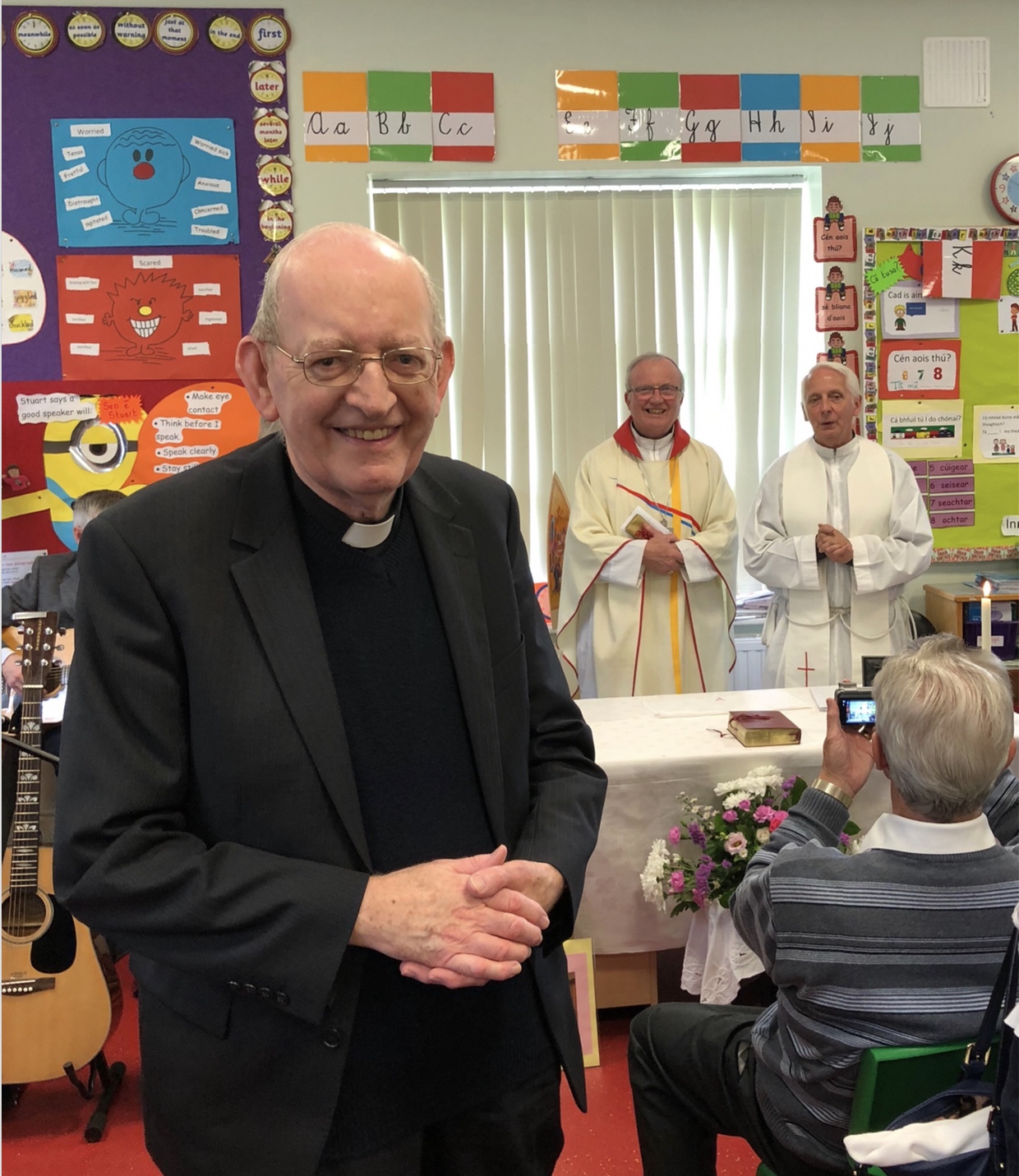Father Oliver Crilly, Diocese of Derry
Q1. How are you coping with lockdown/social distancing?
I’m managing well, thank God, a) because from a personal point of view it’s not as big a change — I’ll be 80 years old in July if I survive, please God, and at the end of December I had an eye bleed (diabetes related) and was on minimum duties (even for a retired priest-in-residence for a few weeks, so it has been progressive,
and b) because I’m surrounded by a wonderfully supportive parish community.
Q2. What do you miss most?
Celebrating Mass (Sundays and weekdays) with a very responsive congregation, who draw out from me reflections on readings etc. which don’t arise in the same way when you’re on your own.
3. How are you reaching out online as a priest/parish? Is there anything you will continue online once lockdown is over?
This is the question which probably stops me at the shortlisting stage. The church in Castlefinn is beautiful – post Vatican II, designed for community involvement, but at present we don’t have webcam.
My colleague, Father Ciarán Hegarty, in the other church in the parish, the parish church in Doneyloop, doesn’t have a webcam either, but he has got an audio streaming arrangement to broadcast Mass and other ceremonies. I haven’t tried that, partly because of my cocooning qualifications.
It wouldn’t qualify under the definition of ‘online’, but the simple phone has proved very useful (both house phone and mobile). One of my best pastoral experiences was doing my First Friday calls by phone at the beginning of April. Our bishop had emailed out a little prayer service to do with the sick over the phone. I knew people would appreciate it, but I wasn’t prepared for the major impact it had. My sick-round people were bowled over by it. I had spread them out over the day, so I had plenty of time, and after the little prayer service they chatted to me. One lady, recently out of hospital, chatted to me for 20 minutes.
The phone works the other way too. Every day I get calls from parishioners to see how I am. It has made me think that there is a pastoral value in accepting ministry as well as exercising it.
The Irish language is a major force for outreach for me. I edit the Irish language page in our diocesan newspaper. Neither the editor nor the printers have Irish, so we developed a kind of ‘painting by numbers’ approach. There are three main sections on the page, and we all know how many words and how many photographs will fit in each section. The designer is brilliant, so she always succeeds in making it look original each month.
I had a book in Irish published in February, and some parishioners even travelled to Belfast to be at the launch. More recently, I was part of the ‘Máthair’ series on TG4. The documentary on Wednesday 8 April was on my cousin Alice McElwee. A lot of parishioners saw it, and several commented that it brought me close to them. On the evening before, I was on TG4 also, in a replay of a documentary on the Troubles, which covered some of my experiences in Strabane in the 1980s.
Q4. What is the first thing you will do after lockdown and when social distancing is over?
I’d love to say I had a major event planned, but one of the first things I want to do is to visit a good picture framing shop in Strabane. I have some special things which I always meant to get framed. Bill Bolger, our great graphic designer, used to do a personal Christmas card every year — totally unique. I have some of them, including a very special one based on the Wexford Carol, and I want them framed. I also have a photo which I just received recently — a very professional photo of Seosamh Mac Grianna, the Donegal author my book is about. It needs a good frame.
Q5. Have you a message for people in need of hope and encouragement at this time?
I don’t have a handy message of hope or whatever. But I have a message for Church people: please don’t allow the experience of isolation or distancing to weaken your commitment to collaborative ministry and building community.
I received an email one day recently from Yahoo (my email address is ymail, based on Yahoo, as gmail is based on Google). The email quoted an African proverb: ‘If you want to go fast, go alone; if you want to go far, go together’.
When the virus struck, the first things to go in church were the things which involve and connect people — the sign of peace, the Offertory procession, etc. Even the experience of on-line liturgies brings the individual priest again into prominence. It’s good that we become familiar with the various technologies and media. But that cannot be allowed to weaken the commitment to collegiality, to being a synodal Church, to being co-responsible, to borrow Pope Benedict’s phrase.
ENDS

